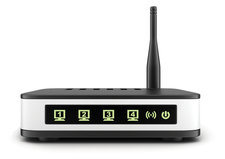Exploring the SafeSquid filter proxy
Safety Filter

If you are looking for a secure option for home surfing and want to protect your children against questionable web content, you need a filtering proxy. SafeSquid is a commercial proxy tool, but it comes with a free version for private users.
SafeSquid acts as a proxy for home users and small to medium-sized networks. The software sits between the browser and the Internet and provides a number of content filters (including for Flash) to make surfing more secure by defining domain blacklists and scanning for malware. Additionally, SafeSquid provides access control in the form of website categories and profiles, as well as an image recognition feature for blocking pornographic material.
Thanks to a cache for web pages and images, in combination with intelligent prefetching for web pages, the SafeSquid also accelerates the surfing experience. A convenient web interface lets users evaluate logs and generate reports. Although the name might make you think otherwise, SafeSquid does not actually use the open source Squid proxy under the hood; instead, it uses a C/C++ in-house alternative developed by the vendor Office Efficiencies. SafeSquid also relies on Bash and Perl scripts for various application cases.
The vendor provides a free version and several commercial alternatives. The free Composite edition is likely more interesting for home users. One difference between the free and commercial variants is that the free version is limited to a maximum of three users. If more than three users access the network filter suite that is centrally installed on your home network, you need the commercial version [1].
[...]
Buy this article as PDF
(incl. VAT)
Buy Linux Magazine
Subscribe to our Linux Newsletters
Find Linux and Open Source Jobs
Subscribe to our ADMIN Newsletters
Support Our Work
Linux Magazine content is made possible with support from readers like you. Please consider contributing when you’ve found an article to be beneficial.

News
-
Introducing matrixOS, an Immutable Gentoo-Based Linux Distro
It was only a matter of time before a developer decided one of the most challenging Linux distributions needed to be immutable.
-
Chaos Comes to KDE in KaOS
KaOS devs are making a major change to the distribution, and it all comes down to one system.
-
New Linux Botnet Discovered
The SSHStalker botnet uses IRC C2 to control systems via legacy Linux kernel exploits.
-
The Next Linux Kernel Turns 7.0
Linus Torvalds has announced that after Linux kernel 6.19, we'll finally reach the 7.0 iteration stage.
-
Linux From Scratch Drops SysVinit Support
LFS will no longer support SysVinit.
-
LibreOffice 26.2 Now Available
With new features, improvements, and bug fixes, LibreOffice 26.2 delivers a modern, polished office suite without compromise.
-
Linux Kernel Project Releases Project Continuity Document
What happens to Linux when there's no Linus? It's a question many of us have asked over the years, and it seems it's also on the minds of the Linux kernel project.
-
Mecha Systems Introduces Linux Handheld
Mecha Systems has revealed its Mecha Comet, a new handheld computer powered by – you guessed it – Linux.
-
MX Linux 25.1 Features Dual Init System ISO
The latest release of MX Linux caters to lovers of two different init systems and even offers instructions on how to transition.
-
Photoshop on Linux?
A developer has patched Wine so that it'll run specific versions of Photoshop that depend on Adobe Creative Cloud.
